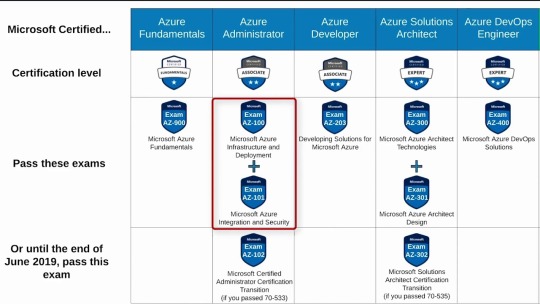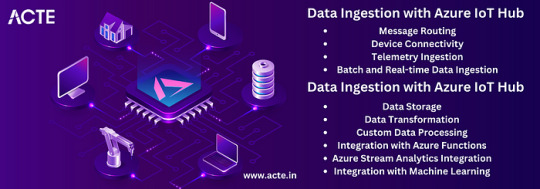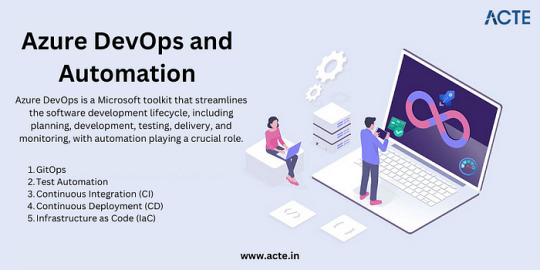#microsoft cloud service
Text
Microsoft Azure Cloud Service | TrnDigital
Azure Cloud Migration Services - TrnDigital provides end-to-end solutions for Microsoft Cloud Azure to support digital transformation. We migrate your applications and help you manage & optimize your IT infrastructure.
0 notes
Text
working with microsoft products is so fucking miserable I have never felt less in control of what I'm doing
like bro why even bother offering an "embed on your site" option if you're gonna demand user sign-in anyways? why did I have to manually fuck with URL query strings to create a direct download link? IF YOUR EMBED SUCKS SO MUCH WHY WON'T YOU LET ME DO IT MANUALLY WITH <object type=application/pdf data=""> AND THE DDL LINK AAAAAAAAAAA
I guess even if I waste multiple days working on this it's still faster than putting up with GoDaddy's dumbass limitations for uploaded files
#uH so for work we give schools a bunch of files re: how students did in the tests they pay us to give them#(yes when I say I hate everyone who works in schooling I am aware of the irony and I include myself in the statement but man I gotta eat)#(and after half a decade of searching I have learned itd be impossible to find another job that won't kill me bc of disabilities n such)#I'm programming a lil web app situation where users select what subject age class and filetype they want#and it shows them the file and a download button#it works great if you're logged into our office 365 accounts but the second you open it with another browser it DEMANDS you log in#though I repeatedly set the files as 'anyone can view but not edit' public#you'd think a cloud file storage service would make it easy to access the files you store in their cloud but haha nope#day ∞ of asking my workplace to let me selfhost instead of depending on microsoft bullshit
8 notes
·
View notes
Text
Navigating the Future as Azure Certifications in 2024
In the ever-evolving landscape of cloud technology, Azure certifications continue to be instrumental in shaping the careers of IT professionals and influencing the strategies of organizations worldwide. As we step into 2024, it's essential to explore the current trends, advancements, and the transformative impact that Azure certifications are poised to have in the coming year.
The Continued Relevance of Azure Certifications
Azure certifications are not mere credentials; they are gateways to expertise and recognition in the dynamic world of cloud computing. As businesses increasingly rely on cloud solutions, the demand for skilled Azure professionals continues to grow. In 2024, Azure certifications stand as key assets, ensuring that professionals possess the knowledge and skills needed to navigate the complexities of cloud technology effectively.

Azure Certification Paths in 2024
Azure certifications are structured into comprehensive paths, catering to individuals at various stages of their cloud journey. From foundational certifications for beginners to advanced tracks tailored for specialized roles like Azure Solutions Architect or Azure DevOps Engineer, the certification paths have evolved to align with the diverse needs of IT professionals. The year 2024 sees an increased focus on role-based certifications, allowing individuals to hone specific skills relevant to their job roles.
Key Benefits of Azure Certifications in 2024
Career Advancement:
Azure certifications are a proven catalyst for career growth. In 2024, as businesses seek skilled professionals, holding an Azure certification becomes a valuable asset for those aiming to advance their careers in cloud technology.
Industry Recognition:
Globally recognized, Azure certifications validate one's expertise in Microsoft's cloud services. Employers across industries acknowledge and value these certifications as a mark of proficiency in handling Azure-based solutions.
Continuous Learning Culture:
In 2024, Azure certifications are not just about achieving a one-time qualification; they embody a commitment to continuous learning. Microsoft regularly updates its certification paths to align with emerging technologies, encouraging professionals to stay abreast of the latest industry trends.
Increased Employability:
As the job market becomes more competitive, possessing Azure certifications enhances employability. In 2024, businesses are actively seeking candidates with practical Azure skills, making certification holders highly sought after.
Emerging Trends in Azure Certifications for 2024
Micro-Certifications:
2024 witnesses a rise in micro-certifications, focusing on specific, targeted skills. These bite-sized certifications allow professionals to demonstrate expertise in niche areas, providing a more granular approach to skill validation.
Scenario-Based Assessments:
Azure certification exams in 2024 are increasingly incorporating scenario-based questions. This shift aims to evaluate not just theoretical knowledge but the ability to apply that knowledge in practical, real-world situations.
Integration of AI and ML:
With the growing importance of artificial intelligence (AI) and machine learning (ML), Azure certifications in 2024 are placing a greater emphasis on these technologies. Certification tracks dedicated to AI and ML applications within Azure are gaining prominence.
Focus on Security:
In response to the heightened concern for cybersecurity, Azure certifications in 2024 place a significant focus on security-related tracks. Azure Security Engineer certifications are expected to be in high demand as organizations prioritize securing their cloud environments.
Tips for Success in Azure Certifications 2024
Stay Updated: Given the evolving nature of technology, staying updated with the latest Azure services and features is crucial. Regularly check Microsoft's official documentation and announcements for any updates.
Hands-On Experience: Practical experience is invaluable. Utilize Azure's sandbox environments, participate in real-world projects, and engage with the Azure portal to reinforce your theoretical knowledge.
Leverage Learning Resources: Microsoft provides a wealth of learning resources, including online courses, documentation, and practice exams. Take advantage of these resources to supplement your preparation.
Join the Azure Community: Engage with the Azure community through forums, webinars, and social media. Networking with professionals in the field can provide insights, tips, and support during your certification journey.
Conclusion
As we venture into 2024, Azure certifications stand as pivotal tools for IT professionals aiming to thrive in the dynamic world of cloud technology. Whether you are starting your journey with foundational certifications or advancing your skills with specialized tracks, Azure certifications in 2024 represent more than just qualifications – they symbolize a commitment to excellence, continuous learning, and a future shaped by innovation in the cloud. Embrace the opportunities, stay ahead of the curve, and let Azure certifications be your guide to success in the ever-evolving realm of cloud proficiency.

Frequently Asked Questions (FAQs)
What are the new Azure certifications introduced in 2024?
As of 2024, Microsoft has introduced several new certifications to align with emerging technologies. Notable additions include specialized tracks focusing on AI, ML, and advanced security.
How has the exam format changed for 2024?
The exam format in 2024 has evolved to include more scenario-based questions. This change is aimed at assessing practical application skills in addition to theoretical knowledge.
Are there any prerequisites for Azure certifications in 2024?
Prerequisites vary based on the specific certification. While some foundational certifications may have no prerequisites, advanced certifications often require prior experience or the completion of specific lower-level certifications.
Can I still take exams for older Azure certifications in 2024?
Microsoft often provides a transition period for older certifications, allowing candidates to complete them even as new certifications are introduced. However, it's advisable to check Microsoft's official documentation for specific details.
How frequently are Azure certifications updated?
Azure certifications are regularly updated to stay aligned with the latest technologies and industry trends. Microsoft recommends that candidates stay informed about updates through official communication channels.
4 notes
·
View notes
Text
My Journey with Azure IoT Hub: Connecting and Managing IoT Devices at Scale
The Internet of Things (IoT), which enables seamless connectivity and automation across numerous industries, has completely changed the way we engage with technology. I was curious to learn more about the Internet of Things and its possible uses as an aspiring IoT enthusiast. My experience using Azure IoT Hub, Microsoft’s cloud-based IoT platform, and how it assisted me in connecting and managing IoT devices at scale are both discussed in this blog.
Getting Started with Azure IoT Hub

To embark on my IoT journey, I began by understanding the fundamentals of Azure IoT Hub. Azure IoT Hub is a fully managed service that acts as a central hub for bi-directional communication between IoT devices and the cloud. It provides secure, reliable, and scalable connectivity for IoT solutions. Setting up an Azure IoT Hub was my first step. While the process was relatively straightforward, I encountered a few challenges along the way.
Connecting IoT Devices
Once Azure IoT Hub was set up, I delved into the world of IoT devices. I worked with various types of IoT devices, ranging from simple sensors to complex industrial machines. Connecting these devices to Azure IoT Hub required the implementation of device-specific protocols such as MQTT or HTTP. Additionally, I focused on securing device connections and data transmission by utilizing security features provided by Azure IoT Hub.
Real-world examples of IoT devices connected to Azure IoT Hub are aplenty. For instance, in the healthcare industry, wearable devices can transmit patient vitals to Azure IoT Hub, allowing healthcare providers to monitor and respond to critical situations promptly. In smart homes, IoT devices such as thermostats and security cameras can be connected to Azure IoT Hub, enabling remote control and monitoring capabilities.
Managing IoT Devices at Scale
As my IoT project grew, I encountered the need to scale up the number of connected devices. Azure IoT Hub offered robust device management features that simplified the process of managing a large fleet of devices. I could remotely monitor the health, status, and firmware version of each device, enabling efficient troubleshooting and maintenance. Implementing best practices for device management, such as grouping devices based on location or functionality, enhanced the overall operational efficiency of my IoT solution.
Data Ingestion and Processing
Data collected from IoT devices is a valuable asset that can drive actionable insights and informed decision-making. Azure IoT Hub facilitated the ingestion and routing of data to Azure services for further processing and analysis. I had the opportunity to work with Azure Stream Analytics and Azure Functions, which enabled real-time data processing, transformation, and visualization. Leveraging these services allowed me to unlock the true potential of IoT data and derive meaningful insights.

Security and Compliance
Any IoT solution must prioritize security. Azure IoT Hub provided robust security features that ensured end-to-end protection of IoT deployments. These features included device authentication, message encryption, and integration with Azure Active Directory for access control. Additionally, Azure IoT Hub helped me meet compliance and regulatory requirements by providing built-in support for industry standards such as ISO 27001, HIPAA, and GDPR. Throughout my journey, I learned valuable lessons and implemented best practices for securing IoT solutions.
Scalability and Performance
Scaling an IoT solution to handle thousands or millions of devices is a complex task. Azure IoT Hub offered scalability features that allowed me to effortlessly handle large-scale IoT deployments. With Azure IoT Hub’s device-to-cloud messaging capabilities, I could reliably transmit messages to and from a massive number of devices. Moreover, I gained insights into optimizing IoT solutions for performance by considering factors such as message size, frequency, and device capabilities.
Real-World Use Cases
To understand the versatility of Azure IoT Hub, it is crucial to explore real-world use cases. In the manufacturing industry, Azure IoT Hub can be leveraged to connect and monitor machines on the factory floor, ensuring optimal performance and predictive maintenance. In the agriculture sector, IoT devices connected to Azure IoT Hub can collect data on soil moisture levels, temperature, and humidity, enabling farmers to make data-driven decisions for irrigation and crop management. These use cases highlight the valuable role that Azure IoT Hub plays in various domains and industries.
Future of IoT and Azure IoT Hub
The future of IoT is promising, with emerging trends shaping the landscape. As IoT continues to evolve, Azure IoT Hub will play a crucial role in enabling seamless connectivity, advanced analytics, and artificial intelligence capabilities. Integration with other Azure services and continuous updates from Microsoft ensure that Azure IoT Hub remains at the forefront of IoT innovation. The possibilities for IoT applications are limitless, and Azure IoT Hub will continue to empower developers and organizations to build robust and scalable IoT solutions.
Throughout my journey with Azure IoT Hub, I gained valuable insights and experiences. Azure IoT Hub simplified the process of connecting and managing IoT devices, providing a reliable and scalable platform. The seamless integration with other Azure services allowed me to unlock the full potential of IoT data. Moreover, the security and compliance features provided peace of mind, ensuring that my IoT solution was protected from threats. Overall, Azure IoT Hub has been instrumental in my IoT journey, contributing to enhanced efficiency and productivity.
Recommendations and Tips
For those interested in starting their own IoT journey with Azure IoT Hub, I offer the following recommendations and tips:
Begin with a clear understanding of your IoT use case and requirements.
Familiarize yourself with the documentation and resources provided by Microsoft to gain a solid foundation.
Start small and gradually scale your IoT solution as needed.
Take advantage of the device management and security features offered by Azure IoT Hub.
Leverage other Azure services such as Azure Stream Analytics and Azure Functions to derive meaningful insights from IoT data.
Stay updated on emerging trends and best practices in the IoT space.
To deepen your knowledge of IoT and Azure IoT Hub, I recommend exploring Microsoft’s official documentation, participating in the ACTE Technologies Microsoft Azure training, and attending IoT-focused conferences and events.

Azure IoT Hub has proven to be a powerful and comprehensive platform for connecting and managing IoT devices at scale. Throughout my journey, I witnessed the transformative potential of IoT solutions and the crucial role played by Azure IoT Hub in enabling seamless connectivity, advanced analytics, and robust security. As IoT continues to evolve, Azure IoT Hub will undoubtedly remain at the forefront of IoT innovation, empowering organizations to build scalable and efficient IoT solutions. I encourage readers to embark on their own IoT journeys, leveraging the capabilities of Azure IoT Hub to unlock the full potential of IoT. Join me in embracing the future of IoT and revolutionizing industries through connected devices. Please leave your comments, stories, and inquiries in the space provided below. Let’s continue the conversation and explore the endless possibilities of IoT together.
#microsoft azure#cloud services#information technology#education#tech#technology#iot#innovation#cloud computing
5 notes
·
View notes
Text
Most in-demand Azure cloud skills that IT professionals should have
In today’s competitive job market, having the right skillset is key to success. Azure cloud skills are becoming increasingly important for IT professionals and developers. With the help of Azure cloud services, organizations can build secure and reliable applications that can scale up or down as needed. Azure cloud skills can be used to develop applications that run on the cloud, manage data, automate processes and deploy solutions quickly and efficiently. It also allows developers to create hybrid solutions by combining on-premise resources with public cloud offerings. Having the right Azure cloud skills can open up new opportunities for IT professionals in terms of career growth and salary potential. It is essential for IT professionals to stay up-to-date with the latest developments in this field in order to remain competitive in this ever-evolving job market. The following are some of the most in-demand Azure cloud skills that IT professionals should have:
1. Azure cloud services: This includes developing applications that run on Microsoft Azure and managing data, automating processes and deploying solutions quickly and efficiently.
2. Azure IaaS: Determines how an organization can build secure, reliable applications by using public cloud resources in combination with on-premise resources to create hybrid solutions for maximum efficiency.
3. Windows Server: In order to develop solutions for either public or private clouds, developers need familiarity with this server operating system which includes Microsoft Azure hybrid solutions.
4. Windows: Determines how an organization can harness the power of the cloud by leveraging the powerful development toolset for this platform and its wide range of applications.
#Azure#Cloud#Cloud computing#Microsoft Azure#Azure Active Directory#Azure Virtual Machines#Azure Storage#Azure Networking#Azure DevOps#Azure Kubernetes Service#Azure SQL#Azure Machine Learning#Azure Automation#Azure Security#Azure IoT#Azure Functions#Azure Logic Apps#Azure App Service#Azure ExpressRoute#Azure Monitor#Azure Cost Management#Azure Backup#Azure Site Recovery#Azure AD B2C#Azure AD B2B
2 notes
·
View notes
Text
Explore the most popular Azure services and products of 2024. This list outlines the top tools and services businesses rely on for cloud computing, data management, AI, and security, helping you make informed technology choices.
#Azure services 2024#top Azure products#Microsoft Azure cloud#cloud computing with Azure#popular Azure tools.
0 notes
Text
#ERP Services#ERP Development#ERP Software Development#ERP Software Development near me#ERP Software Development for Businesses#ERP Software Development in India#ERP development Process#ERP Development Company#ERP Development Services#ios app development company in noida#custom software development company in noida#software development company in noida#app development in noida#Cloud Consulting Services#Cloud Consulting Services in Noida#software development company in india#Mobile App Development Company#Mobile App Development Company near me#Cloud Consulting Services & Solutions#Cloud Consulting Services in India#Cloud Services#Cloud Strategy & Consulting Service#Cloud Managed Services#AWS cloud consulting services#Cloud Software Consulting Services#Amazon Cloud Consulting Services#Cloud Consulting Services India#Microsoft Azure cloud consulting services#Best Service cloud consulting providers#AWS Cloud Services
0 notes
Text
Software Development Company in USA and India
#software developers#software company#software testing#cloud operations#ai#technology#mobile app developers#bfsi payment#data and analytics services#microsoft
0 notes
Text
#Microsoft Dynamics 365#cloud-based ERP and CRM solution#Microsoft Dynamics 365 ERP implementation#Dynamics 365 integrate#Dynamics 365 Sales.#Dynamics 365 Customer Service.#Dynamics 365 Finance.#Dynamics 365 Supply Chain Management.#Dynamics 365 Human Resources.#Dynamics 365 Marketing.#Dynamics 365 Commerce.
0 notes
Text
Microsoft Business Cloud for Project-based Business- sa.global
Microsoft Business Cloud helps project-based business to optimize the management of projects all the way from start to finish, thereby maximizing performance.
0 notes
Text
Top 10 Alternatives and Competitors to Amazon Web Services (AWS)
AWS is Amazon’s cloud service that provides fast, flexible, and affordable solutions for building and running apps online. It has many tools you can use to create and manage your applications.
But AWS has some limits and changes in performance depending on where you are and the hardware it uses. This can affect how well your application works.
Here is a list of the top alternatives to AWS. These…
#Amazon Web Services#AWS#aws alternatives#aws competitors#Cloudways#Digitalocean#Google Cloud#Hostinger#Kamatera#Linode#LiquidWeb#Microsoft Azure#OVHcloud#ScalaHosting#Vultr
0 notes
Text
Achieve Success with Tailored Azure Consulting Services Today
Elevate your Azure journey. Leverage our consultants' know-how. Optimize costs and performance. Achieve your goals with personalized Azure services.
#Azure consulting services#Azure consulting#Microsoft Azure consulting services#Azure cloud consultant#Azure consultants
1 note
·
View note
Text
Maximize Your Cloud Investment with ECF Data's Azure Licensing Expertise
Unlock the full potential of your Microsoft Azure environment with expert licensing services from ECF Data! We offer tailored Azure licensing solutions to optimize costs, streamline operations, and ensure compliance. Whether you're scaling your business or looking for the right licensing model, our specialists are here to guide you every step of the way.
Get started today and maximize your cloud investments.
Visit ECF Data's Azure Licensing Services for a consultation!
#azure cloud computing#azure services#microsoft azure partner#Azure Licensing#Azure licensing services#las vegas nevada#managed it services#azure ai#nevada
1 note
·
View note
Text
Azure’s Evolution: What Every IT Pro Should Know About Microsoft’s Cloud
IT professionals need to keep ahead of the curve in the ever changing world of technology today. The cloud has become an integral part of modern IT infrastructure, and one of the leading players in this domain is Microsoft Azure. Azure’s evolution over the years has been nothing short of remarkable, making it essential for IT pros to understand its journey and keep pace with its innovations. In this blog, we’ll take you on a journey through Azure’s transformation, exploring its history, service portfolio, global reach, security measures, and much more. By the end of this article, you’ll have a comprehensive understanding of what every IT pro should know about Microsoft’s cloud platform.
Historical Overview
Azure’s Humble Beginnings
Microsoft Azure was officially launched in February 2010 as “Windows Azure.” It began as a platform-as-a-service (PaaS) offering primarily focused on providing Windows-based cloud services.
The Azure Branding Shift
In 2014, Microsoft rebranded Windows Azure to Microsoft Azure to reflect its broader support for various operating systems, programming languages, and frameworks. This rebranding marked a significant shift in Azure’s identity and capabilities.
Key Milestones
Over the years, Azure has achieved numerous milestones, including the introduction of Azure Virtual Machines, Azure App Service, and the Azure Marketplace. These milestones have expanded its capabilities and made it a go-to choice for businesses of all sizes.
Expanding Service Portfolio
Azure’s service portfolio has grown exponentially since its inception. Today, it offers a vast array of services catering to diverse needs:
Compute Services: Azure provides a range of options, from virtual machines (VMs) to serverless computing with Azure Functions.
Data Services: Azure offers data storage solutions like Azure SQL Database, Cosmos DB, and Azure Data Lake Storage.
AI and Machine Learning: With Azure Machine Learning and Cognitive Services, IT pros can harness the power of AI for their applications.
IoT Solutions: Azure IoT Hub and IoT Central simplify the development and management of IoT solutions.
Azure Regions and Global Reach
Azure boasts an extensive network of data centers spread across the globe. This global presence offers several advantages:
Scalability: IT pros can easily scale their applications by deploying resources in multiple regions.
Redundancy: Azure’s global datacenter presence ensures high availability and data redundancy.
Data Sovereignty: Choosing the right Azure region is crucial for data compliance and sovereignty.
Integration and Hybrid Solutions
Azure’s integration capabilities are a boon for businesses with hybrid cloud needs. Azure Arc, for instance, allows you to manage on-premises, multi-cloud, and edge environments through a unified interface. Azure’s compatibility with other cloud providers simplifies multi-cloud management.
Security and Compliance
Azure has made significant strides in security and compliance. It offers features like Azure Security Center, Azure Active Directory, and extensive compliance certifications. IT pros can leverage these tools to meet stringent security and regulatory requirements.
Azure Marketplace and Third-Party Offerings
Azure Marketplace is a treasure trove of third-party solutions that complement Azure services. IT pros can explore a wide range of offerings, from monitoring tools to cybersecurity solutions, to enhance their Azure deployments.
Azure DevOps and Automation
Automation is key to efficiently managing Azure resources. Azure DevOps services and tools facilitate continuous integration and continuous delivery (CI/CD), ensuring faster and more reliable application deployments.

Monitoring and Management
Azure offers robust monitoring and management tools to help IT pros optimize resource usage, troubleshoot issues, and gain insights into their Azure deployments. Best practices for resource management can help reduce costs and improve performance.
Future Trends and Innovations
As the technology landscape continues to evolve, Azure remains at the forefront of innovation. Keep an eye on trends like edge computing and quantum computing, as Azure is likely to play a significant role in these domains.
Training and Certification
To excel in your IT career, consider pursuing Azure certifications. ACTE Institute offers a range of certifications, such as the Microsoft Azure course to validate your expertise in Azure technologies.

In conclusion, Azure’s evolution is a testament to Microsoft’s commitment to cloud innovation. As an IT professional, understanding Azure’s history, service offerings, global reach, security measures, and future trends is paramount. Azure’s versatility and comprehensive toolset make it a top choice for organizations worldwide. By staying informed and adapting to Azure’s evolving landscape, IT pros can remain at the forefront of cloud technology, delivering value to their organizations and clients in an ever-changing digital world. Embrace Azure’s evolution, and empower yourself for a successful future in the cloud.
#microsoft azure#tech#education#cloud services#azure devops#information technology#automation#innovation
2 notes
·
View notes
Text
Expert Cloud Consulting(ECC) As An Azure Service Provider Can Help You Make Your Business Critical Applications Ready For The Cloud. ECC Provides Varied Services Like Infrastructure Assessment, Azure Migration, And Azure Consulting. Our Experienced And Dedicated Azure Consultants Help You To Provide The Perfect Cloud Strategy For The Success Of Your Business.
#microsoft azure cloud#azure cloud computing#microsoft azure services#azure cloud services#Azure AD Support Services#azure AD migration services#Active Directory & Azure AD Support#Azure Security Services#Microsoft azure security consulting
0 notes
Text
Azure Services: The Complete Guide - Part 4 | IFI Techsolutions
Microsoft Azure Services: The Complete Guide - Part 4 In this article, we will discuss Azure SaaS services. SaaS allows your organization to get quickly up and running with an app at minimal upfront cost.
#ifi techsolutions#microsoft azure#information technology#microsoft partner#technology#Cloud Computing#cloud migration consulting#MIcrosoft Azure Services#Azure Saas Services#marketing#software
0 notes